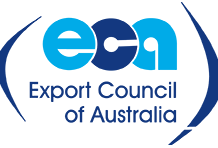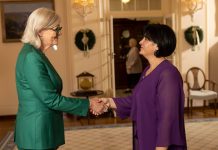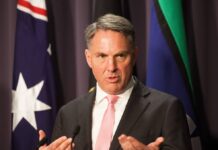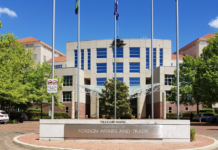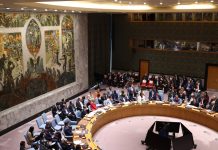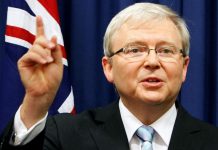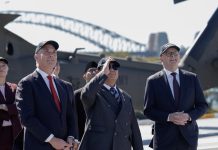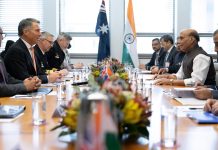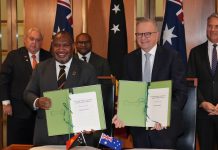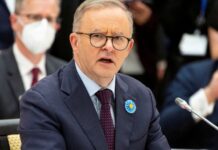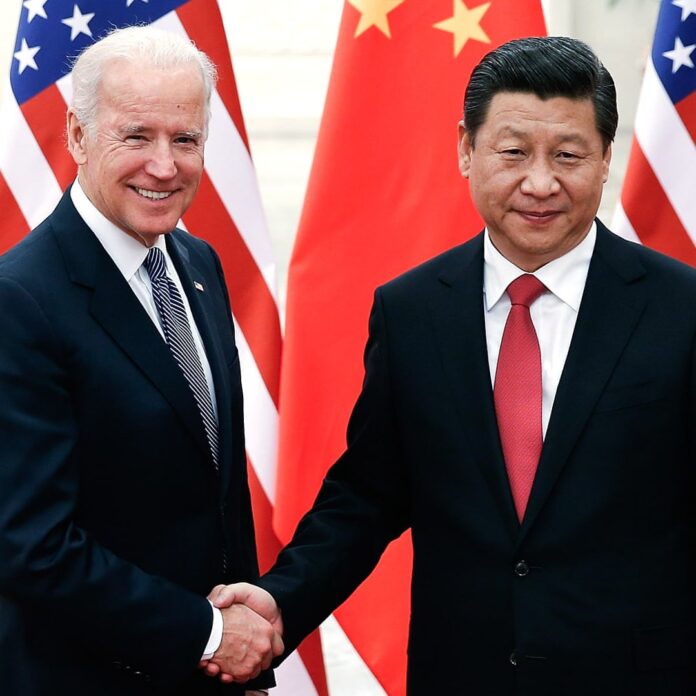Despite a record fall in trust level in bilateral relations with China, majority of Australians strongly believed that Australia should remain neutral in case of a military conflict between China and the United States.
According to the Lowy Institute Poll 2021 published on Wednesday June 23, trust in China has fallen to a new record low, with only 16% of Australians saying that they trust China ‘a great deal’ or ‘somewhat’ to act responsibly in the world.
When asked about a military conflict between China and the United States, more than half the population (57%) say ‘Australia should remain neutral’. Four in ten Australians (41%) say ‘Australia should support the United States’ and 1% say ‘Australia should support China’. Interestingly only 21% of Australians aged 18–29 say Australia should support the United States in the case of conflict, a view held by the majority (58%) of Australians aged over 60. Seven in ten Australians (72%) say it is possible for Australia to have good relations with the United States and China at the same time.
The Lowy Institute Poll conducted by the Social Research Centre (SRC) between 15 and 29 March 2021, with a sample size of 2222 Australian adults. Climate Poll 2021 reports the results of a representative survey conducted by SRC between 12 and 26 April 2021, with a sample size of 3286 Australian adults.
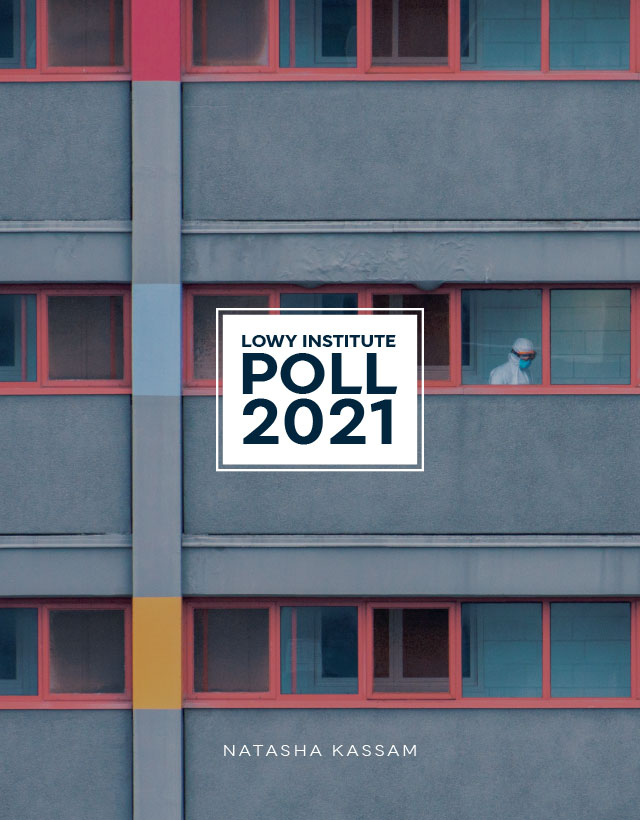
Confidence in world leaders
New Zealand’s Prime Minister Jacinda Ardern tops the list of global leaders again, with 91% expressing confidence in her (up 4 points from 2020). Australians also hold high levels of confidence in German Chancellor Angela Merkel, with 67% saying they have confidence in her. Two-thirds (67%) express confidence in Prime Minister Scott Morrison, a 7-point increase from 2020. The number who are confident in Australia’s Opposition leader Anthony Albanese remains steady at 56%. More than half (59%) have confidence in UK Prime Minister Boris Johnson, 4 points higher than in 2020.
Safety and threats to Australia’s interests
Australians’ feelings of safety appear to have rebounded from the record lows in 2020. Seven in ten Australians (70%) say they feel ‘very safe’ or ‘safe’, an increase of 20 points. Six in ten Australians say that cyber attacks from other countries and climate change (62% and 61% respectively) pose critical threats to Australia’s vital interests in the next ten years.
Fewer Australians (59%) see COVID-19 as a critical threat in 2021, down 17 points from last year. More than half the population (56%) see North Korea’s nuclear program and Australia-China relations as critical threats. For the first time, the majority of Australians (52%) say a military conflict between the United States and China over Taiwan poses a critical threat to Australia’s vital interests, an increase of 17 points from 2020. Half (51%) say international terrorism is a critical threat, up 5 points since 2020, but 17 points below the level of concern in 2017.
Five in ten Australians (50%) say a severe downturn in the global economy is a critical threat, a 21-point drop since 2020. Half (49%) say foreign interference in Australian politics poses a critical threat, a 7-point increase from 2020. A substantial minority say right-wing extremism (42%) and the influence of social media companies (39%) pose a critical threat to Australia’s vital interests. A mere 9% say a lower rate of immigration into Australia poses a critical threat.
Australia’s place in the world
Almost all Australians (97%) say Australia’s response to COVID19 will have a ‘very positive’ or ‘positive’ influence on Australia’s reputation in the world. The majority of Australians also agree that Australia’s diplomatic service (84%), foreign aid program (83%) and defence force (82%) have a positive influence on our reputation overseas. However, a majority of Australians (54%) say Australia’s climate change policy has a negative influence on Australia’s reputation overseas.
Coalition government report card
The Australian public awards high marks to the Coalition government for its response to COVID-19 (7.6 out of 10) and for maintaining ‘Australia’s national security’ and ‘a strong alliance with the United States’ (both 6.8 out of 10). The government receives 6.6 out of 10 for managing the economy, and 6.5 out of 10 for presenting a good image of Australia internationally. Australians are more divided on China, awarding 5.1 marks out of 10 for the government’s management of the bilateral relationship. The only area where the government receives a below-average mark is for Australia’s approach to climate change (4.6 out of 10).
Climate change and energy
Six in ten (60%) say ‘global warming is a serious and pressing problem. We should begin taking steps now, even if this involves significant costs’, a 4-point increase from 2020. Three-quarters (74%) say ‘the benefits of taking further action on climate change will outweigh the costs’. The majority of Australians support subsidising renewable energy technology (91%), setting a net-zero emissions target for 2050 (78%) and introducing an emissions trading scheme or carbon tax (64%). Ahead of COP26, seven in ten (70%) agree Australia should ‘join other countries, such as the United Kingdom and the United States, to increase its commitments to address climate change’.







